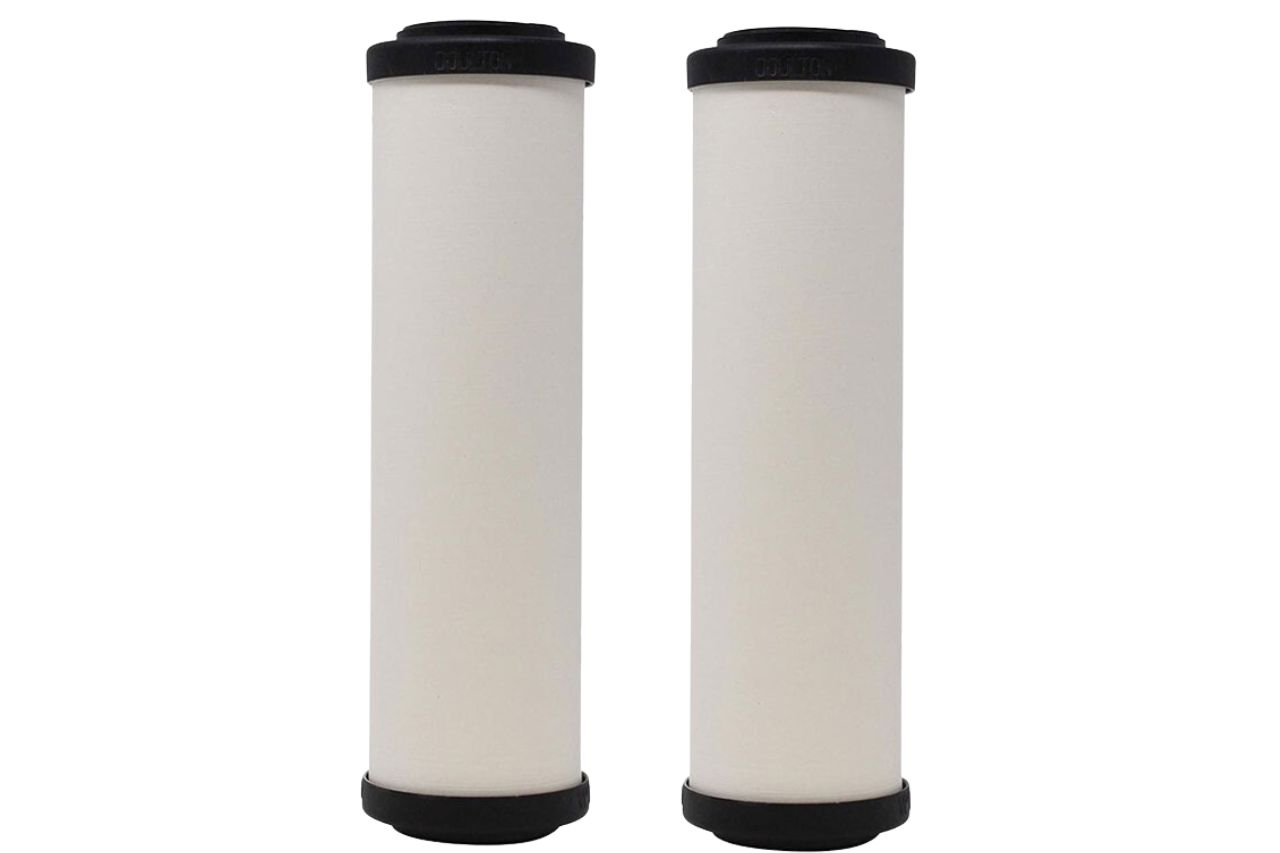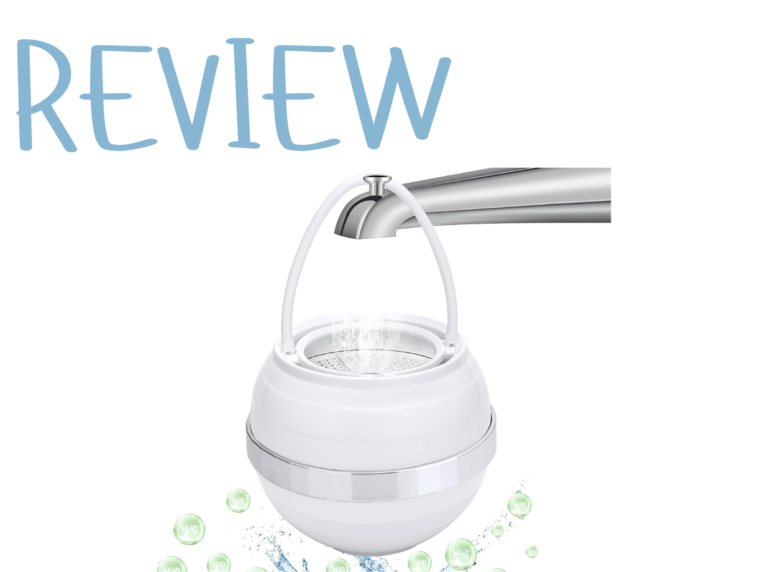How Ceramic Water Filters Work and Why They’re Effective
Concerned about the quality of your drinking water and its environmental impact? Ceramic water filters are an eco-friendly solution. With clean water becoming scarce, we need sustainable alternatives that ensure our health and reduce our carbon footprint. Ceramic filters are game changers. They’re made from natural materials, require no electricity, chemicals, or plastic cartridges, and effectively remove harmful contaminants like bacteria, viruses, and heavy metals. By choosing ceramic filters, you improve your well-being and help preserve our planet’s resources. Join the eco-friendly revolution with ceramic water filters for a positive impact on your health and the environment.
What is a Ceramic Water Filter?
A ceramic water filter is a type of water filtration system that uses porous ceramic materials to remove impurities from water. These filters are typically made from clay, which is fired at high temperatures to create a porous structure. The ceramic material acts as a barrier, trapping contaminants while allowing clean water to pass through. Ceramic water filters are commonly used in households, communities, and even in emergency situations where access to clean water is limited.
Ceramic water filters come in different forms, including candles, cartridges, and gravity-fed systems. The ceramic filter candles are the most common type, resembling a cylindrical tube with a porous structure. These candles can be easily attached to water containers or water filter systems to provide clean drinking water. The porous nature of the ceramic material allows water to pass through while trapping bacteria, viruses, and other impurities.
Does a Ceramic Water Filter Remove Viruses?
Yes, ceramic water filters are capable of removing viruses from water. The porous structure of the ceramic material acts as a physical barrier, preventing the passage of particles larger than the pore size. Most ceramic filters have a pore size of 0.2 to 0.9 microns, which is small enough to effectively remove bacteria, protozoa, and viruses. The small size of viruses, typically ranging from 0.02 to 0.3 microns, makes them susceptible to filtration by ceramic water filters. This makes ceramic water filters an excellent choice for areas where waterborne diseases are prevalent.
It is important to note that not all ceramic water filters are capable of removing viruses. Some filters may have larger pore sizes that are only effective against bacteria and larger particles. When choosing a ceramic water filter, it is essential to ensure that it has been specifically designed and tested to remove viruses. Look for filters that have been certified by reputable organizations, such as the National Sanitation Foundation (NSF), to ensure their effectiveness against viruses.
Does a Ceramic Water Filter Remove Chemicals?
Ceramic water filters are primarily designed to remove physical impurities such as bacteria, viruses, and sediment. While they can effectively remove some chemicals, their ability to do so may vary depending on the specific filter design and pore size. Ceramic filters with smaller pore sizes are more likely to remove chemicals through adsorption or physical filtration.
Some ceramic filters are enhanced with activated carbon, which can improve their chemical filtration capabilities. Activated carbon is known for its ability to adsorb organic compounds, chlorine, and some heavy metals. When water passes through the ceramic filter, the activated carbon adsorbs these chemicals, improving the taste and odor of the water. However, it is important to note that ceramic water filters may not be as effective as specialized carbon filters in removing certain volatile organic compounds (VOCs) or heavy metals.
How Much Do Ceramic Water Filters Cost?
The cost of ceramic water filters can vary depending on the brand, size, and additional features. Generally, the prices range from $20 to $100, with some more specialized systems costing upwards of $200. The cost of replacement filter candles or cartridges should also be taken into consideration, as they may need to be replaced periodically to maintain the filter’s effectiveness.
While ceramic water filters may have a higher upfront cost compared to other filtration systems, their long-term cost-effectiveness makes them a worthwhile investment. Ceramic filters are known for their durability and can last for several years with proper maintenance. Additionally, the absence of electricity or costly replacement cartridges reduces the ongoing expenses associated with these filters.
How Do Ceramic Water Filters Work?
Ceramic water filters work through a combination of physical and mechanical filtration mechanisms. The porous structure of the ceramic material acts as a physical barrier, preventing the passage of contaminants larger than the pore size. Bacteria, viruses, sediment, and other impurities are trapped within the ceramic material, allowing clean water to flow through.
In addition to physical filtration, ceramic water filters may also incorporate other mechanisms such as adsorption and electrostatic attraction. Some filters are enhanced with activated carbon or silver, which can further improve their filtration capabilities. Activated carbon adsorbs organic compounds and chlorine, while silver has antimicrobial properties that can help inhibit the growth of bacteria.
Ceramic water filters are typically gravity-fed systems, meaning that water flows through the filter naturally due to the force of gravity. This eliminates the need for electricity or complex pumping systems, making ceramic filters ideal for areas with limited infrastructure or access to electricity.
Ceramic Water Filter Pros and Cons
Like any filtration system, ceramic water filters have their pros and cons. Understanding these can help you make an informed decision when choosing a filter for your home or community.
Pros of Ceramic Water Filters:
1. Eco-Friendly: Ceramic filters are made from natural materials and do not require electricity or chemicals to function effectively. They have a minimal impact on the environment and contribute to sustainable water solutions.
2. Effective Filtration: Ceramic filters are capable of removing bacteria, viruses, sediment, and other impurities from water. They provide reliable protection against waterborne diseases.
3. Cost-Effective: While ceramic filters may have a higher initial cost, their long lifespan and minimal maintenance requirements make them cost-effective in the long run.
4. Easy to Use: Ceramic filters are user-friendly and do not require complex installation or maintenance procedures. They are suitable for both households and communities.
5. **Emergency Preparedness: Ceramic filters are often used in emergency situations where access to clean water is limited. They can provide a reliable source of safe drinking water during natural disasters or emergencies.
Cons of Ceramic Water Filters:
1. Limited Chemical Filtration: Ceramic filters may not be as effective in removing certain chemicals, especially volatile organic compounds (VOCs) or heavy metals. Additional treatment methods may be required for comprehensive chemical filtration.
2. Slow Filtration Rate: Ceramic filters have a slower filtration rate compared to some other filtration systems. This means that it may take longer to collect a sufficient amount of clean water.
3. Regular Maintenance: While ceramic filters are generally low-maintenance, they do require periodic cleaning to ensure optimal performance. Neglecting maintenance can lead to clogging or decreased filtration efficiency.
How Effective are Ceramic Water Filters?
Ceramic water filters are highly effective in removing bacteria, viruses, and other impurities from water. The pore size of ceramic filters is typically small enough to trap these microorganisms, providing a reliable barrier against waterborne diseases. However, it is important to note that the effectiveness of ceramic filters can vary depending on various factors, including the filter design, pore size, and water quality.
To ensure optimal performance, it is recommended to choose ceramic water filters that have been tested and certified by reputable organizations such as the National Sanitation Foundation (NSF). These certifications provide assurance that the filter meets stringent standards for water filtration.
It is also important to consider the specific water quality and contaminants in your area when selecting a ceramic water filter. Some filters may be more effective against certain types of contaminants, while others may require additional treatment methods for comprehensive filtration.
How Long Do Ceramic Water Filters Last?
The lifespan of ceramic water filters can vary depending on factors such as water quality, frequency of use, and maintenance. However, with proper care and maintenance, ceramic filters can last for several years. Cleaning the filter periodically and replacing the filter candles or cartridges as recommended by the manufacturer can help prolong the lifespan of the filter.
Regular cleaning is essential to prevent the buildup of contaminants and maintain the filter’s effectiveness. This can be done by gently scrubbing the ceramic surface with a soft brush or sponge and rinsing it thoroughly. It is important to follow the manufacturer’s instructions for cleaning and maintenance to avoid damaging the filter.
How to Choose the Right Ceramic Water Filter
Choosing the right ceramic water filter involves considering factors such as filtration capabilities, pore size, certification, and cost. Here are some key considerations to keep in mind:
1. Filtration Capabilities: Determine the specific contaminants you want to remove from your water, such as bacteria, viruses, sediment, or chemicals. Look for filters that have been tested and certified to effectively remove these contaminants.
2. Pore Size: Consider the pore size of the filter. Smaller pore sizes provide better filtration against bacteria and viruses. However, it is important to ensure that the filter can still maintain an adequate flow rate.
3. Certification: Look for filters that have been certified by reputable organizations such as the National Sanitation Foundation (NSF). These certifications provide assurance of the filter’s performance and quality.
4. Cost: Consider the initial cost of the filter as well as the ongoing expenses for replacement filter candles or cartridges. Evaluate the long-term cost-effectiveness of the filter.
5. Ease of Use and Maintenance: Choose a filter that is user-friendly and easy to maintain. Consider factors such as installation requirements, cleaning procedures, and availability of replacement parts.
Maintenance and Care of Ceramic Water Filters
Proper maintenance and care are essential to ensure the optimal performance and longevity of ceramic water filters. Here are some tips for maintaining and caring for your filter:
1. Regular Cleaning: Clean the filter periodically to remove trapped contaminants and maintain its effectiveness. Follow the manufacturer’s instructions for cleaning and use gentle scrubbing to avoid damaging the ceramic surface.
2. Replace Filter Candles or Cartridges: Replace the filter candles or cartridges as recommended by the manufacturer. Over time, the ceramic material may become clogged or lose its filtration efficiency.
3. Inspect for Damage: Regularly inspect the filter for any signs of damage or wear. Cracks or chips in the ceramic material can compromise the filter’s effectiveness.
4. Store Properly: If you need to store the filter for an extended period, ensure that it is clean and dry. Store it in a cool and dry place to prevent the growth of mold or bacteria.
5. Follow Manufacturer’s Instructions: Always follow the manufacturer’s instructions for installation, maintenance, and replacement of filter components. This will help ensure the optimal performance of the filter.
Can Ceramic Water Filters be Cleaned and Reused?
Yes, ceramic water filters can be cleaned and reused. Regular cleaning is necessary to remove trapped contaminants and maintain the filter’s effectiveness. The cleaning process involves gently scrubbing the ceramic surface with a soft brush or sponge and rinsing it thoroughly. It is important to follow the manufacturer’s instructions for cleaning to avoid damaging the filter.
While ceramic filters can be cleaned and reused, it is important to note that they have a limited lifespan. Over time, the ceramic material may become clogged or lose its filtration efficiency. Replacement filter candles or cartridges may be necessary to ensure optimal filtration performance. It is recommended to replace the filter components as recommended by the manufacturer.
Ceramic Filter vs Carbon Filter
Ceramic water filters and carbon filters are two common types of water filtration systems. While both are effective in removing impurities from water, they function differently and have distinct advantages and limitations.
Ceramic Water Filters:
- Filtration Mechanism: Ceramic water filters work through physical filtration, trapping contaminants in the porous ceramic material. Some filters may also incorporate additional mechanisms such as adsorption or electrostatic attraction.
- Contaminant Removal: Ceramic filters are effective in removing bacteria, viruses, sediment, and some chemicals. However, their ability to remove certain chemicals or heavy metals may be limited.
- Durability: Ceramic filters are known for their durability and can last for several years with proper maintenance. They are less prone to clogging compared to some other types of filters.
- Cost-Effectiveness: While ceramic filters may have a higher upfront cost, their long lifespan and minimal maintenance requirements make them cost-effective in the long run.
- Eco-Friendly: Ceramic filters are made from natural materials and do not require electricity or chemicals to function effectively. They have a minimal impact on the environment.
Carbon Filters:
- Filtration Mechanism: Carbon filters use activated carbon to adsorb impurities from water. The activated carbon has a large surface area, allowing it to effectively trap and remove organic compounds, chlorine, and some chemicals.
- Contaminant Removal: Carbon filters are highly effective in removing organic compounds, chlorine, and some chemicals. They can also improve the taste and odor of water.
- Limited Lifespan: Carbon filters have a limited lifespan and need to be replaced more frequently compared to ceramic filters. The adsorption capacity of the activated carbon diminishes over time.
- Ongoing Expenses: Carbon filters require regular replacement of the carbon filter cartridges, which can add to the ongoing expenses associated with these filters.
- Chemical Filtration: Carbon filters are generally more effective in removing certain chemicals compared to ceramic filters. They are commonly used for comprehensive chemical filtration.
Key Takeaways:
- Ceramic water filters are eco-friendly and use porous ceramic materials to remove impurities from water.
- They are effective in removing bacteria, viruses, and sediment, but their ability to remove chemicals may vary.
- Ceramic filters are durable and can last for several years with proper maintenance.
- They are cost-effective in the long run, despite having a higher upfront cost.
- Regular cleaning and replacement of filter components are necessary to maintain their effectiveness.
- Ceramic filters can be cleaned and reused, but they have a limited lifespan.
- Carbon filters, another type of water filtration system, excel in chemical filtration but have a shorter lifespan and higher ongoing expenses compared to ceramic filters.




